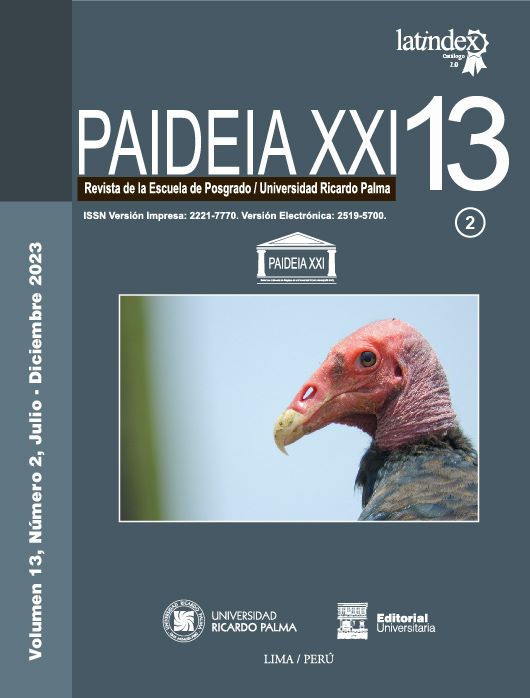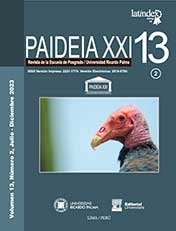Bacterial identification using 16S rRNA gene sequencing from banana pseudostem wet rot samples
DOI:
https://doi.org/10.31381/paideiaxxi.v13i2.5873Keywords:
Wet rot, 16S rRNA, Banana organic, KlebsiellaAbstract
Wet rot affects organic banana crops in the northern tropical region of Peru. Several bacteria have been reported to cause wet rot on different crops, leading to severe problems, particularly in humid climates. Bacteria infect the banana pseudostem through wounds caused during plant pruning and insect bites. Knowledge about bacteria identification that causes wet rot may provide a valuable tool for controlling this issue. The present study explored the primary bacterial component of banana pseudostem wet rot samples at three localities in the Sullana province of Piura, using 16S rRNA gene sequencing. A total of one hundred and thirty-six sequence data were obtained from the three Sullana localities: forty sequences of bacterial isolates from the Querecotillo locality sample, forty-eight from Mambre, and Salitral each. The genus Klebsiella of the Enterobacteriaceae family was identified as the main bacterial component in organic banana pseudostem wet rot. This finding reinforces the need to continue with studies that provide evidence of the bacterial role of the genus Klebsiella.












